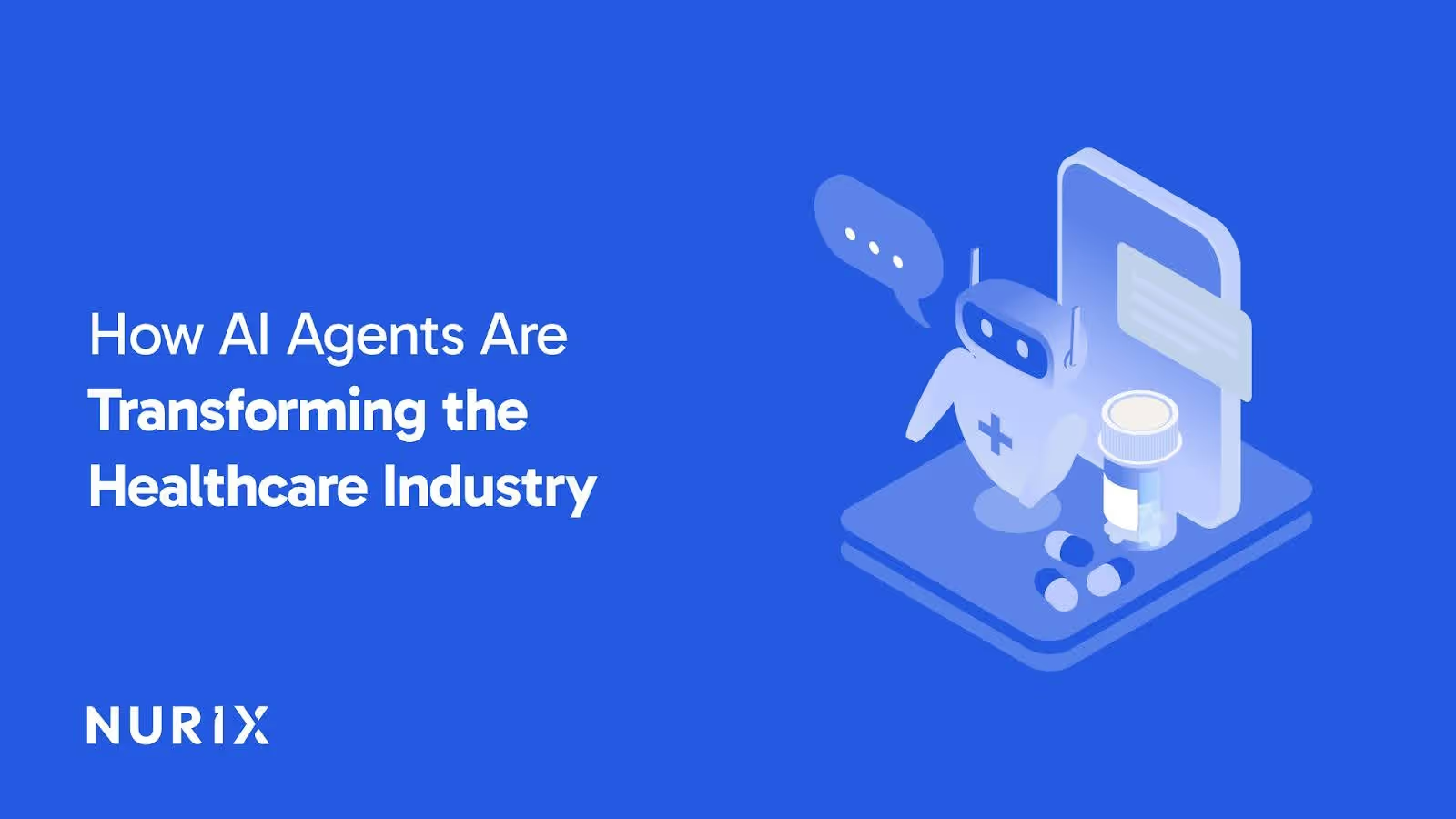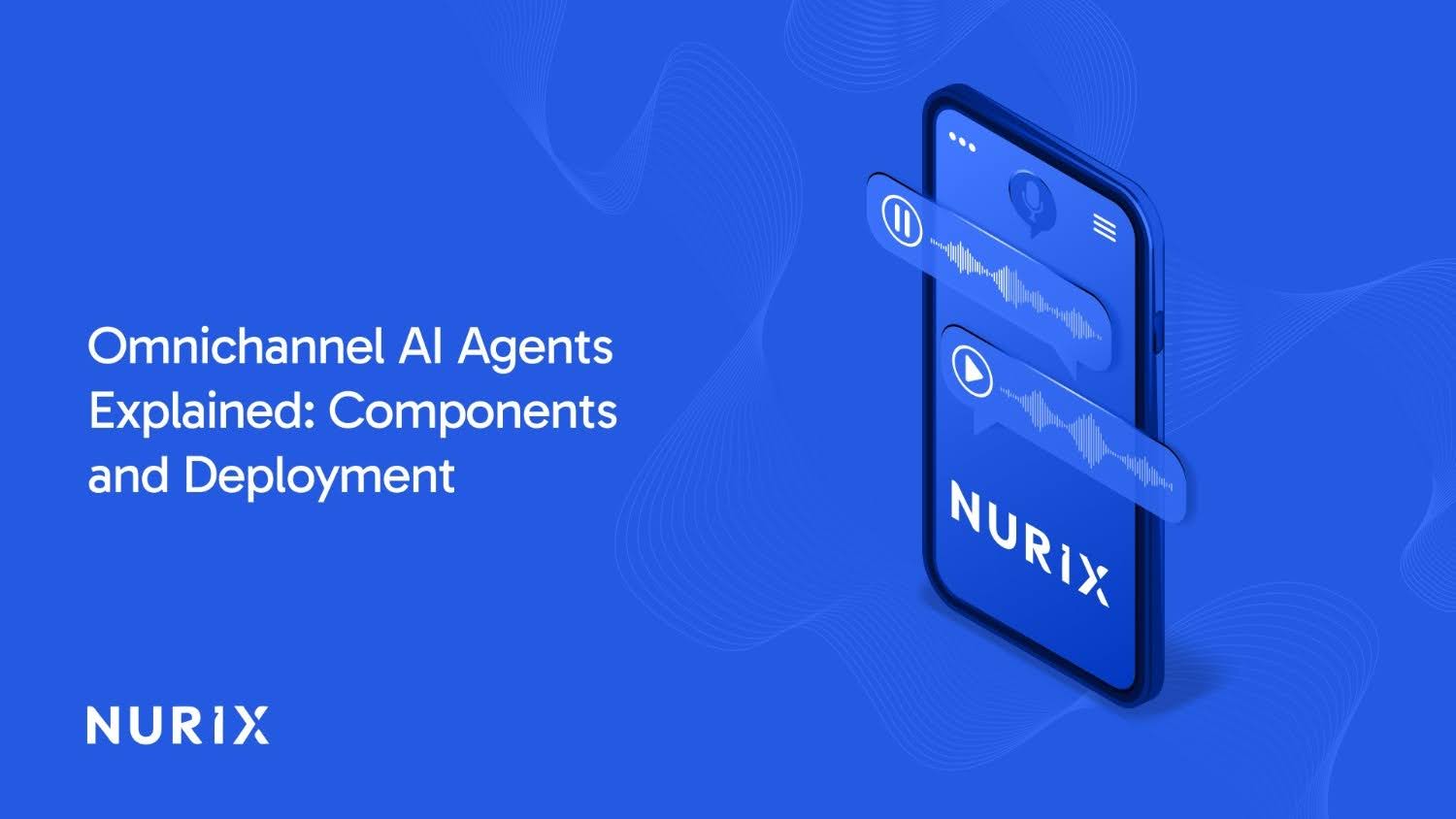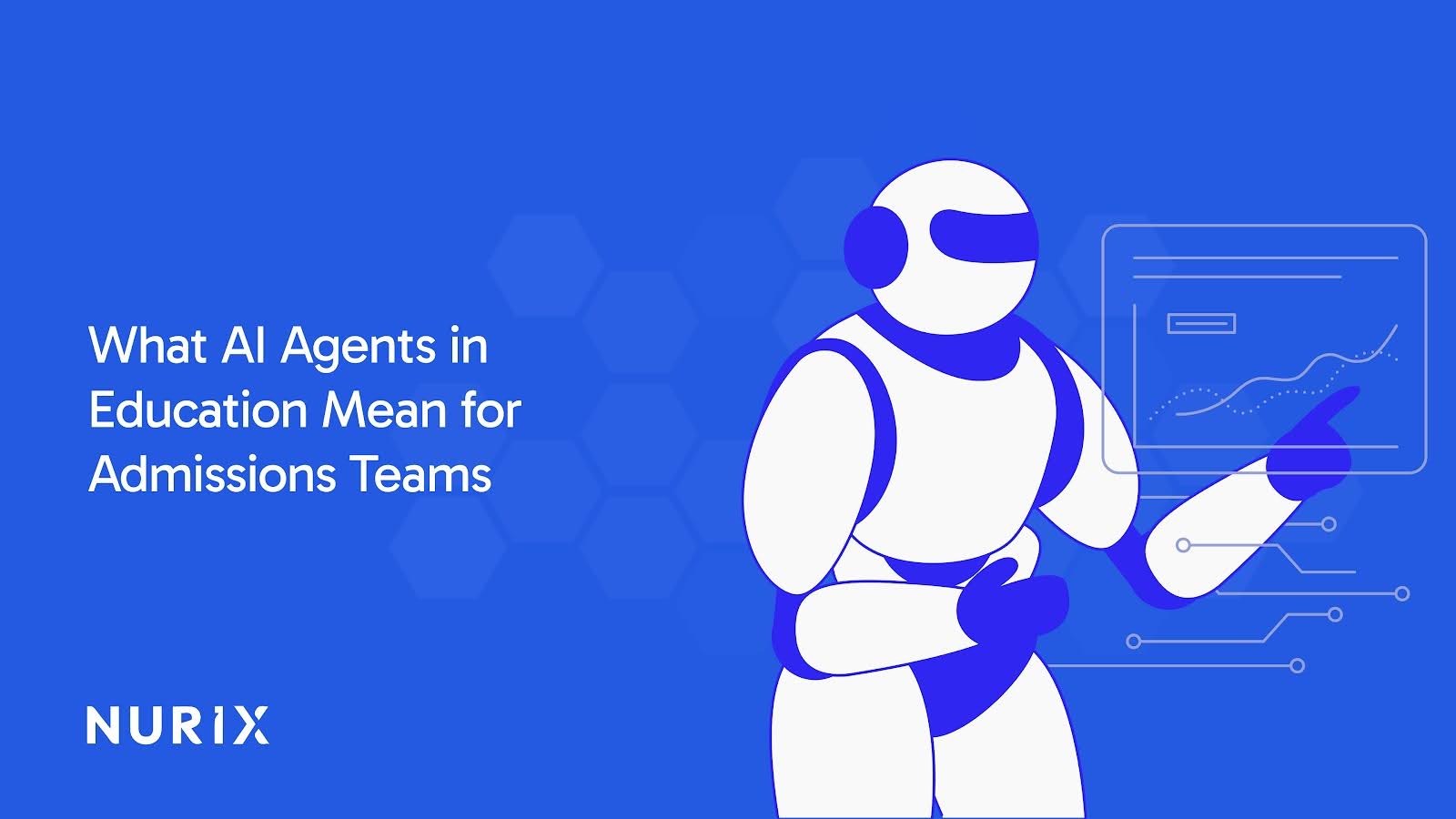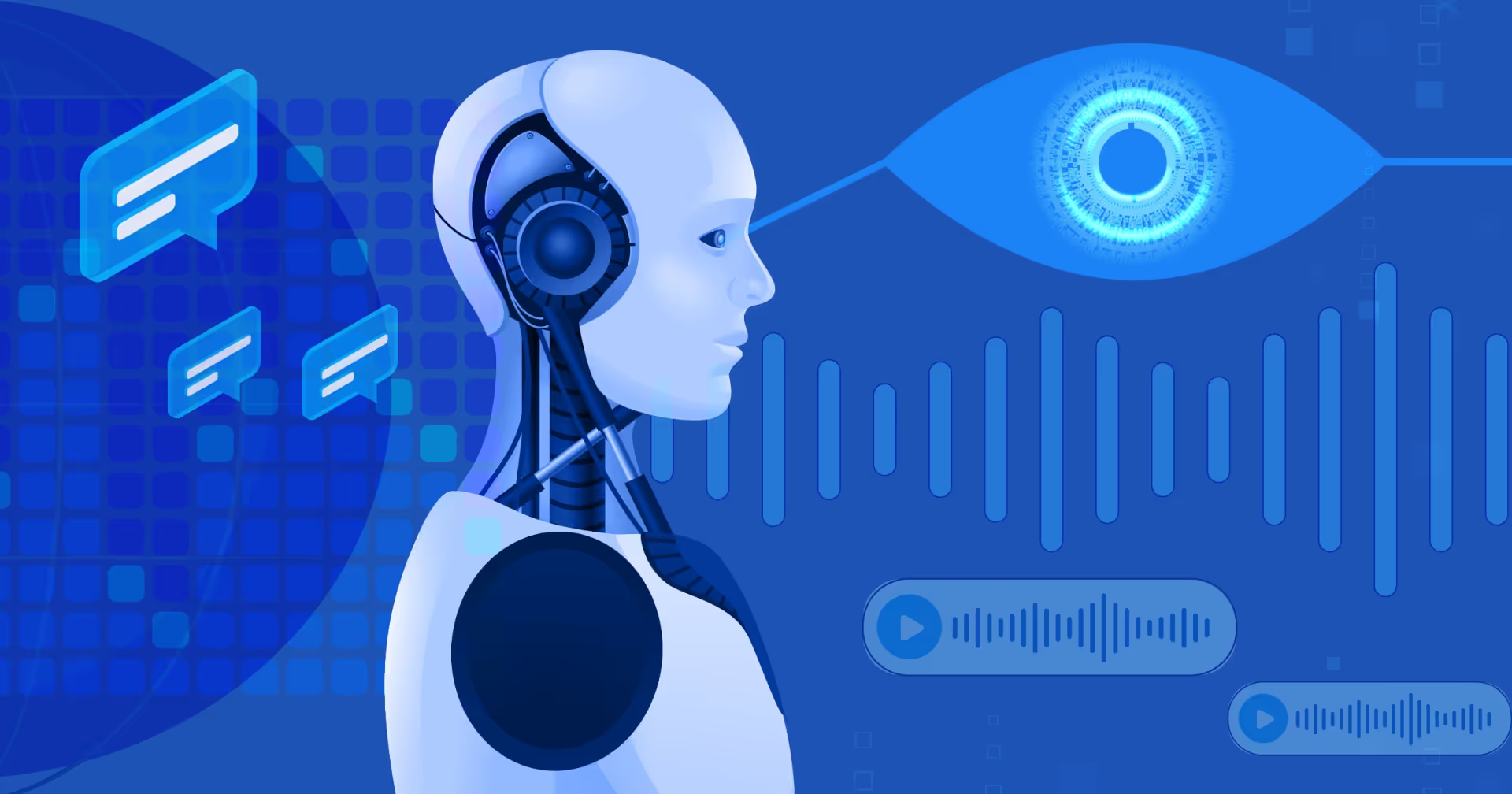Healthcare’s pain points are front and center: staff burnt out, patients tired of long waits, front desks jammed up with repetitive paperwork. Clinics and care networks can’t keep up with unpredictable swings in patient demand and sky-high administrative overhead. That’s why so many organizations are looking closely at how AI agents are transforming the healthcare industry, going far beyond any buzz.
The market says it all. AI agents pulled in $3.84 billion in 2024, and projections show a jump to $51.58 billion by 2032. These aren’t just big numbers or catchy headlines; they speak to real willingness among providers to tackle no-shows, automate routine tasks, and put data-driven guidance in every clinician’s hands. You don’t need promises; you want bottom-line impact and tangible improvements. This is where the real story lies about how AI agents are transforming the healthcare industry.
In this blog, we’ll break down how these digital agents are changing patient engagement, slashing operational friction, and supporting care delivery.
Takeaways
- AI Agents Address Real Healthcare Stress Points: They reduce administrative burdens, staff burnout, and patient wait times by automating routine tasks and improving operational responsiveness.
- AI Combines Multiple Technologies for Clinical Insight: By integrating data from EHRs, devices, and natural language inputs, AI agents analyze and act on complex healthcare information with clinical precision.
- Proven Impact Across Critical Healthcare Functions: From diagnostics and drug development to patient monitoring and billing automation, AI agents deliver measurable improvements in accuracy, speed, and cost savings.
- Future AI Agents Will Drive Greater Autonomy: Emerging capabilities like digital patient modeling and autonomous clinical operations promise more proactive, adaptive, and personalized care.
- Nurix AI Demonstrates Practical, Brand-Aligned Solutions: With human-like conversations and integrated action-oriented features, Nurix AI reduces no-shows, automates follow-ups, and enhances patient engagement securely and efficiently.
What Are AI Agents in Healthcare?
AI agents in healthcare are autonomous software systems that combine artificial intelligence technologies, including machine learning, natural language processing, and predictive analytics, to perceive their environment, make informed decisions, and take actions to improve patient care and healthcare operations. These digital assistants work independently or semi-independently to achieve specific healthcare objectives while learning and adapting from data and experiences over time.
Unlike traditional automation that follows predefined rules, AI agents possess cognitive capabilities that enable them to analyze vast amounts of medical data, recognize patterns, and make intelligent decisions in complex healthcare scenarios. They function as collaborative partners to healthcare professionals, processing information at unprecedented speed and scale while maintaining clinical accuracy and safety standards.
Core Components of AI Agents in Healthcare
Let’s cut to the mechanics behind these systems, the core pieces that make AI agents tick and deliver real value in healthcare settings.
- Input Systems: AI agents gather and unify data from electronic health records, imaging systems, sensors, medical devices, and both spoken and written user inputs to construct a real-time clinical snapshot.
- Perception Layer: They process this data using computer vision for images, natural language processing for documents, and sensor analysis, which enables the detection of key details, anomalies, and a thorough case overview.
- Cognitive Core (Brain): Machine learning models sit at the center, analyzing historical and live data to support diagnoses, intervention recommendations, and risk predictions, while referencing clinical guidelines and constantly updating based on outcomes.
- Memory Systems: Agents store comprehensive histories, protocols, and experiences, allowing instant retrieval, pattern comparison, and ongoing improvement based on past interactions.
- Planning Module: They deliver targeted recommendations, adapting treatment plans, scheduling resources, or flagging concerns, using current evidence, resource status, and the latest clinical context.
- Action Systems: Routine tasks, such as documentation, appointment handling, and alerts, are managed autonomously. Agents interact directly with health records, teams, and patients to keep operations responsive.
- Learning and Adaptation: Continuous monitoring and updates based on new clinical data and feedback drive refinement. Agents can also learn collectively, sharing knowledge without compromising privacy.
- Safety and Compliance Framework: Oversight is maintained through regulatory checks, audit trails, and required human review for sensitive actions. Transparency in every intervention builds trust and ensures clinical rigor.
The technology behind conversational AI explains why hospitality businesses are adopting it to handle real challenges in operations and guest interactions.
Importance of AI Agents in Healthcare
Here’s why these systems matter: these aren’t just add-ons, but tools moving the needle on outcomes that drive both care quality and business performance. In a sector where every percentage point reflects real lives and real dollars, the importance of AI agents goes well beyond surface-level improvements.
- Financial Cost Savings: AI automation significantly cuts administrative expenses, with an estimated annual savings of $150 billion, while reducing medication errors and preventing billions in fraud. Hospitals report high returns on investment and save clinicians substantial time.
- Addressing Workforce Shortages: Studies show physicians currently spend 15.5 hours weekly on paperwork, enabling providers to focus more on patient care. Nurses’ productivity can rise by up to 50%, helping manage higher patient loads without sacrificing quality.
- Reducing Medical Errors and Enhancing Safety: AI lowers diagnostic and treatment errors by over 13%, combating a leading cause of death. Predictive alerts focus attention on critical cases, filtering out noise and preventing harm.
- Improving Patient Experience: AI improves support with 24/7 virtual assistants, reduces no-show rates by 25%, and allows clinicians to spend more direct time with patients by automating documentation. Patient satisfaction ratings for AI-assisted care generally surpass traditional interactions.
- Streamlining Operations and Resource Use: By forecasting demand and optimizing supply chains, AI shortens emergency wait times and cuts medical waste by up to half. Administrative task automation frees staff to prioritize patient-facing duties.
- Boosting Diagnostic Accuracy and Speed: AI tools detect diseases earlier and with accuracy comparable or superior to specialists, speeding up processes and enabling timely interventions that improve outcomes.
- Driving Revenue Growth and Competitive Positioning: Improved throughput, lower readmissions, and better outcomes attract more patients and skilled staff. Some facilities report multimillion-dollar annual gains linked to AI adoption.
Top Applications of AI Agents in Healthcare
To see how AI agents are transforming the healthcare industry in practice, it helps to zero in on the specific roles they’re playing, where their impact moves beyond theory into measurable results.
1. Medical Imaging and Diagnostics
AI agents in medical imaging analyze millions of data points to detect diseases earlier and more accurately than traditional methods. These systems process X-rays, MRIs, CT scans, and other imaging modalities to identify subtle patterns that human radiologists might miss.
Key Use case details:
- Early Disease Detection: AI systems identify cancer, neurological disorders, and cardiovascular conditions at earlier stages by analyzing complex imaging patterns and comparing them against vast databases.
- Automated Image Analysis: Computer vision algorithms automatically segment anatomical structures, measure organ dimensions, and highlight areas of concern, reducing interpretation time from hours to minutes.
- Quality Assurance: Real-time monitoring systems ensure imaging protocols are followed correctly and flag potential quality issues before scans are completed.
Benefits of AI Agents:
- Diagnostic Precision: Studies show AI imaging systems achieve expert-level accuracy in detecting pneumonia, cancer, and other conditions, with some outperforming human radiologists in specific tasks.
- Workflow Acceleration: Automated prioritization systems flag urgent cases immediately, reducing critical diagnosis delays and allowing radiologists to focus on complex cases requiring human expertise.
- Cost Reduction: Streamlined imaging workflows reduce operational expenses while maintaining diagnostic quality, with some hospitals reporting significant cost savings through AI implementation.
2. Drug Discovery and Development
AI agents accelerate pharmaceutical research by analyzing molecular structures, predicting drug interactions, and optimizing clinical trial design. These systems reduce the traditional 10-15 year drug development timeline while improving success rates.
Key Use case details:
- Molecular Design: Generative AI creates novel compound structures by exploring chemical space more efficiently than traditional methods, identifying promising drug candidates from trillions of possible molecules.
- Clinical Trial Optimization: Predictive models identify optimal patient populations, forecast trial outcomes, and streamline recruitment processes using electronic health records and real-world evidence.
- Safety Prediction: Machine learning algorithms analyze drug-target interactions to predict adverse effects and optimize dosing regimens before human testing begins.
Benefits of AI Agents:
- Development Speed: AI-powered drug discovery platforms reduce initial screening phases from months to weeks, accelerating time-to-market for life-saving medications.
- Success Rate Improvement: Predictive analytics help pharmaceutical companies identify high-potential compounds earlier, reducing the 90% failure rate in clinical development.
- Research Cost Reduction: Automated screening and virtual patient modeling significantly lower R&D expenses by eliminating unsuccessful candidates before expensive human trials.
3. Predictive Analytics and Risk Assessment
AI agents process vast amounts of patient data to identify health risks before symptoms appear, enabling proactive interventions that prevent hospitalizations and improve outcomes. These systems analyze patterns across electronic health records, wearable devices, and laboratory results.
Key Use case details:
- Early Warning Systems: Machine learning models continuously monitor patient vitals and lab values to predict sepsis, cardiac events, and other critical conditions 2-6 hours before clinical manifestation.
- Population Health Management: AI algorithms identify high-risk patient cohorts and recommend targeted interventions based on social determinants of health, genetic factors, and medical history.
- Resource Forecasting: Predictive models help hospitals anticipate patient admission patterns, optimize staffing levels, and manage inventory based on seasonal trends and disease outbreaks.
Benefits of AI Agents:
- Preventive Care: Early risk identification enables timely interventions that prevent disease progression, reducing emergency department visits and hospitalizations by up to 30%.
- Care Personalization: Individual risk profiles allow healthcare providers to customize treatment plans based on each patient's unique characteristics and predicted responses.
- Operational Efficiency: Demand forecasting helps healthcare systems optimize resource allocation, reducing waste and ensuring adequate supplies during peak periods.
4. Virtual Health Assistants and Patient Monitoring
AI-powered virtual assistants provide 24/7 patient support, medication reminders, and symptom monitoring through conversational interfaces. These systems bridge gaps in care between clinical visits while maintaining continuous oversight of patient health.
Key Use case details:
- Remote Patient Monitoring: Wearable devices connected to AI systems track vital signs, activity levels, and medication adherence, alerting healthcare providers when intervention is needed.
- Conversational Support: Natural language processing enables patients to ask health questions, schedule appointments, and receive personalized guidance through chatbots and voice assistants.
- Chronic Disease Management: AI agents help patients with diabetes, hypertension, and other chronic conditions by monitoring symptoms, adjusting treatment plans, and providing lifestyle recommendations.
Benefits of AI Agents:
- Continuous Care: Round-the-clock monitoring ensures patients receive immediate attention when health parameters exceed safe ranges, preventing emergencies.
- Patient Engagement: Interactive AI systems improve medication adherence and self-care behaviors by providing personalized reminders and educational content.
- Healthcare Access: Virtual assistants eliminate geographical barriers and provide multilingual support, making healthcare services available to underserved populations.
Nurix AI automates appointment scheduling and follow-ups, reducing staff workload while increasing patient engagement. It integrates seamlessly with existing systems, ensuring compliant, real-time booking available 24/7. This results in fewer no-shows, faster appointment handling, and higher patient satisfaction.
5. Robotic Surgery and Surgical Assistance
AI-powered surgical robots provide unparalleled precision and control during complex procedures, reducing operative times and improving patient outcomes. These systems combine computer vision, machine learning, and robotic manipulation to assist surgeons in real-time.
Key Use case details:
- Precision Surgery: AI algorithms guide robotic instruments with sub-millimeter accuracy, enabling minimally invasive procedures with smaller incisions and reduced tissue damage.
- Real-time Decision Support: Computer vision systems analyze surgical footage to provide intraoperative guidance, error detection, and procedural recommendations based on best practices.
- Surgical Planning: Digital twin technology creates patient-specific surgical simulations that allow surgeons to rehearse procedures and anticipate complications before entering the operating room.
Benefits of AI Agents:
- Surgical Outcomes: Studies show AI-assisted procedures result in 25% shorter operative times, 30% fewer complications, and 40% improved surgical precision compared to traditional methods.
- Patient Recovery: Minimally invasive AI-guided procedures reduce postoperative pain, hospital stays, and recovery times, with patients experiencing 15% faster healing.
- Surgeon Performance: AI systems reduce surgeon fatigue and provide consistent performance regardless of external factors, improving overall surgical quality.
6. Administrative Automation and Billing
AI agents streamline healthcare operations by automating repetitive administrative tasks, processing insurance claims, and managing billing workflows. These systems reduce human error while accelerating revenue cycle management.
Key Use case details:
- Claims Processing: Machine learning algorithms automatically review medical codes, verify insurance eligibility, and submit claims with higher accuracy rates than manual processing.
- Revenue Cycle Management: AI systems track claim status, predict denial risks, and optimize reimbursement processes by identifying documentation gaps before submission.
- Fraud Detection: Pattern recognition algorithms identify suspicious billing activities, duplicate claims, and unusual provider behaviors to prevent healthcare fraud.
Benefits of AI Agents:
- Processing Speed: Automated billing systems reduce claim processing time from days to hours while maintaining compliance with healthcare regulations.
- Error Reduction: AI-powered coding and billing systems achieve higher accuracy rates than manual processes, reducing claim denials and rework.
- Cost Savings: Healthcare organizations report up to $1 million in annual savings through automated documentation and reduced administrative overhead.
7. Mental Health Support and Therapy
AI-powered mental health chatbots provide accessible psychological support through evidence-based therapeutic techniques. These systems offer cognitive behavioral therapy interventions and crisis support while maintaining patient privacy.
Key Use case details:
- Therapeutic Interventions: AI chatbots deliver cognitive behavioral therapy (CBT) techniques, mood tracking, and personalized coping strategies based on validated psychological frameworks.
- Crisis Detection: Natural language processing algorithms identify signs of suicidal ideation, severe depression, and other mental health emergencies to trigger immediate interventions.
- Accessibility Support: Multilingual AI systems provide mental health resources to diverse populations while maintaining anonymity and reducing stigma associated with seeking help.
Benefits of AI Agents:
- 24/7 Availability: Mental health support is accessible at any time without appointment scheduling, providing immediate assistance during crises.
- Reduced Barriers: AI chatbots eliminate geographical, financial, and social obstacles that prevent people from accessing traditional mental health services.
- Treatment Continuity: Consistent therapeutic support between human therapy sessions helps maintain treatment progress and provides ongoing coping skill reinforcement.
What matters most right now is clear enough; the next piece is how all of this might stretch even further, shaping where healthcare goes from here.
What Are the Future Potentials of AI Agents in Healthcare
Where are things headed from here? As demand and data grow, the ways in which AI agents are transforming the healthcare industry will only get more interesting, and the opportunities for new value are just getting started.
- Digital Patient Modeling: AI agents will build virtual patient replicas, merging genetic, physiological, and environmental data to simulate individual responses to various treatments and provide genomic-based care recommendations.
- Autonomous Clinical Operations: Medical systems and robotic platforms will independently diagnose, adjust therapies in real-time, perform precision surgeries, and manage patient care, especially for emergencies and critical environments.
- Predictive and Preventive Health Management: AI will monitor population trends, forecast outbreaks, and identify individual risks far earlier using multi-modal data, enabling proactive interventions and personalized prevention strategies.
- Real-Time Therapeutics and Adaptive Devices: Medical devices will continuously monitor patient status and automatically adjust drugs and therapies based on up-to-the-minute physiological feedback.
- Automated Resource Coordination: Interconnected AI networks will predict hospital demand, control supply chains, and manage staffing, while synchronizing patient information and follow-ups across care providers to maintain continuity and reduce inefficiencies.
- Clinical and Research Automation: AI will design, recruit for, and monitor clinical trials, predict and adjust protocols as trials progress, and accelerate biomarker and drug discovery through integrated analysis of complex biological datasets.
How Nurix AI Can Transform Healthcare Processes
Nurix AI delivers 24/7 intelligent support that automates appointment booking, reduces no-shows, and maintains patient and customer engagement by answering common questions. Integrated directly with EHR and booking systems and fully HIPAA-compliant, Nurix AI helps reduce staff workload, increase conversions, and improve overall experience across healthcare and fitness services.
Key Features:
- AI-Powered Appointment Scheduling: Captures patient intent via call, chat, email, or website; verifies details; and confirms appointments in real time, shortening wait times and preventing missed inquiries.
- Follow-Up and Recall Automation: Sends automated reminders for tests, checkups, and future visits; collects post-visit feedback; assists with billing and insurance updates; and escalates issues when needed, improving patient retention and care completion.
- Lead Capture and Qualification: Engages new inquiries across channels, collects key information, and qualifies leads to deliver higher-quality prospects and faster response times.
- Smart Routing and Seamless Handoffs: Identifies caller needs instantly and routes them to the right department or contact with complete conversation context, reducing wait times and frustration while ensuring smooth transitions.
- AI-Powered FAQ Agent: Provides accurate, instant answers to common patient and member questions about services, pricing, insurance, class schedules, and facility details, lowering call volume and enabling effortless self-service.
Conclusion
The impact of AI agents on healthcare goes beyond automation; it’s about refining interaction and decision-making in ways that align with real operational challenges. These agents are not just tools; they are a shift in how care systems respond to human needs and clinical demands, quietly improving accuracy, easing burdens, and creating smoother workflows. This change reflects a deliberate focus on practical value rather than hype, demonstrating what technology can do when designed to fit into the complexities of healthcare delivery.
Building on this momentum, Nurix AI offers a voice-driven platform designed to engage, understand, and convert through authentic dialogue that feels natural and purposeful. It’s an approach that pushes past basic chatbots by delivering real actions, from booking appointments to updating records, while communicating in a voice uniquely reflective of your brand.
To explore how Nurix AI’s voice platform can redefine your healthcare interactions and operational flow, get in touch with us today.











